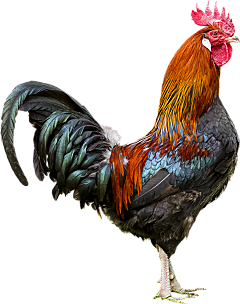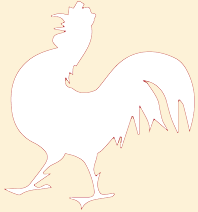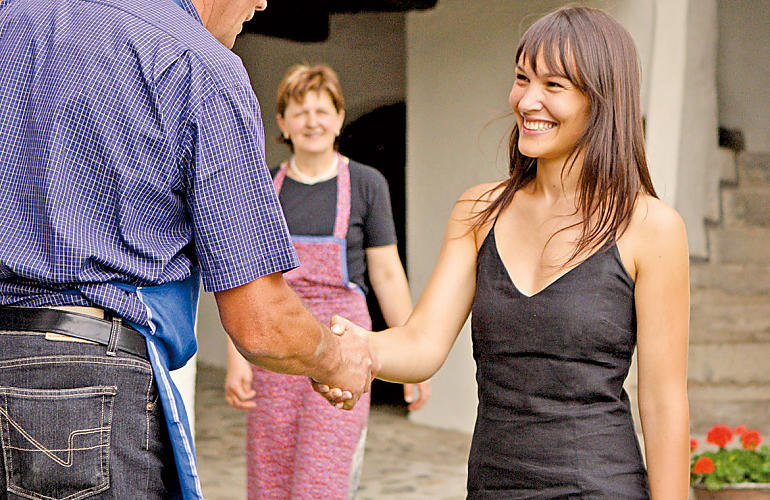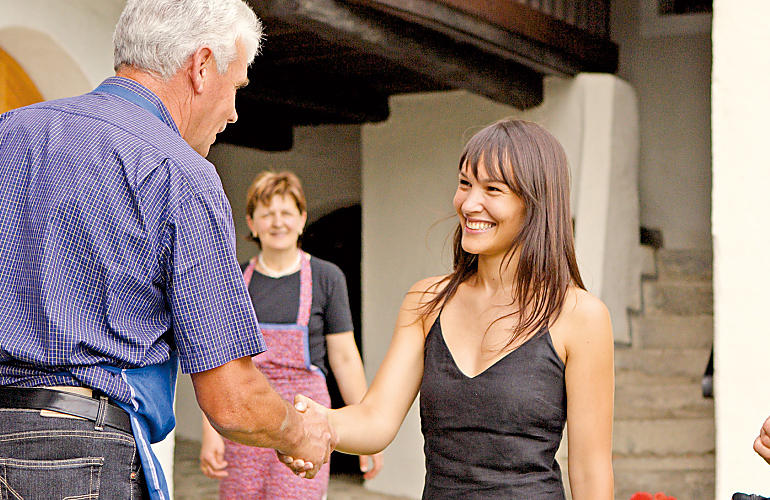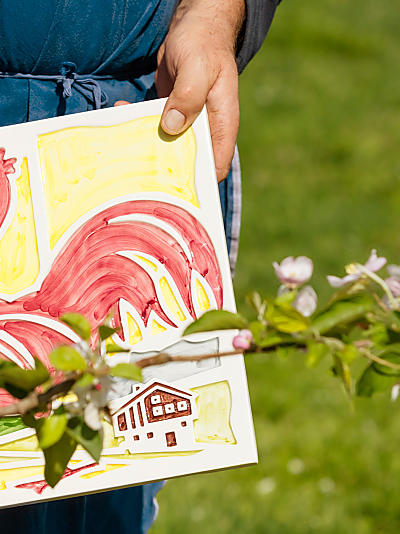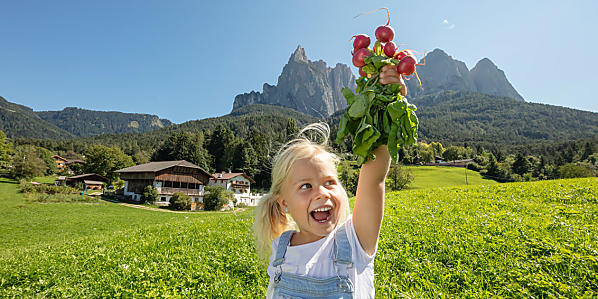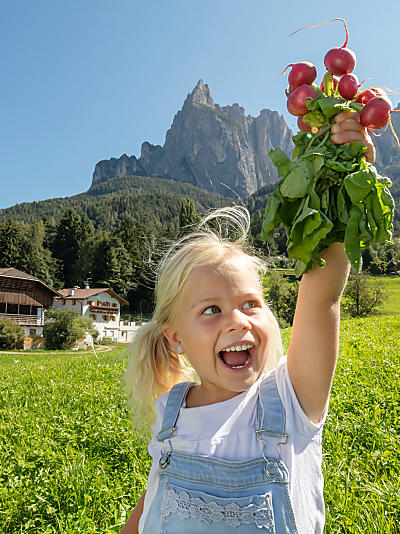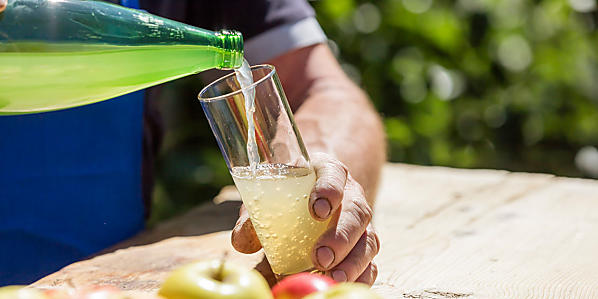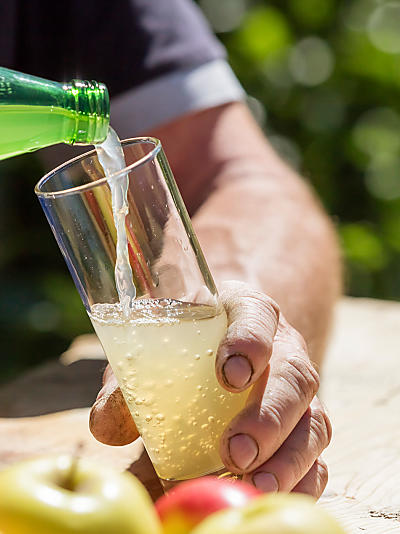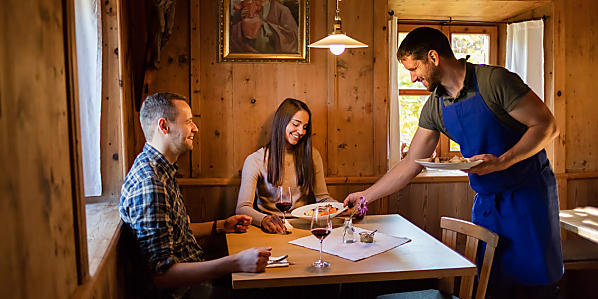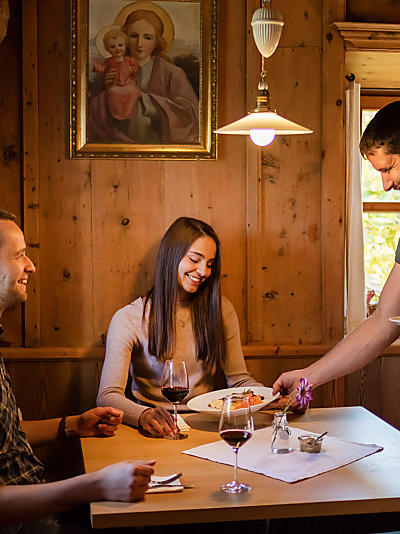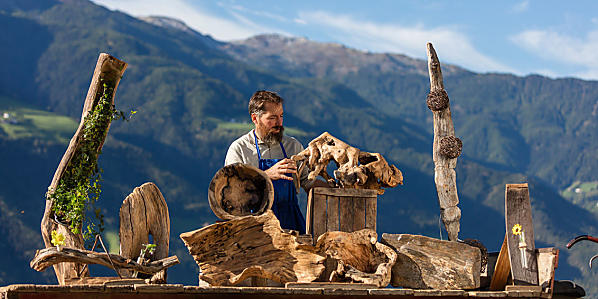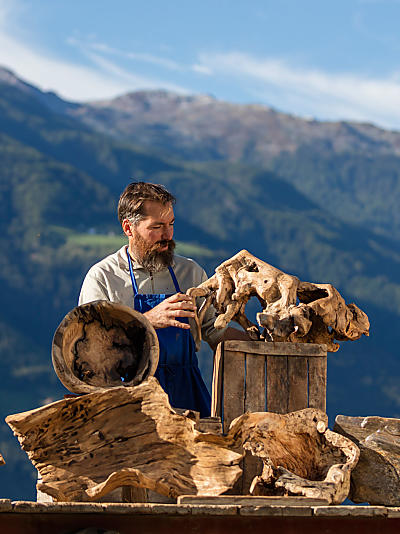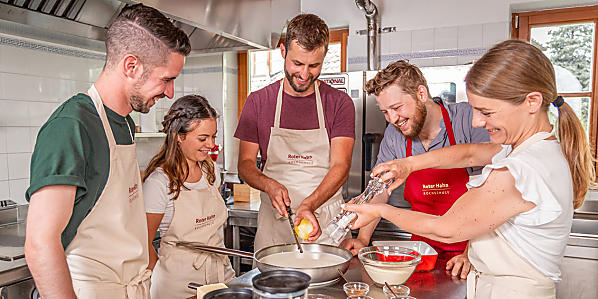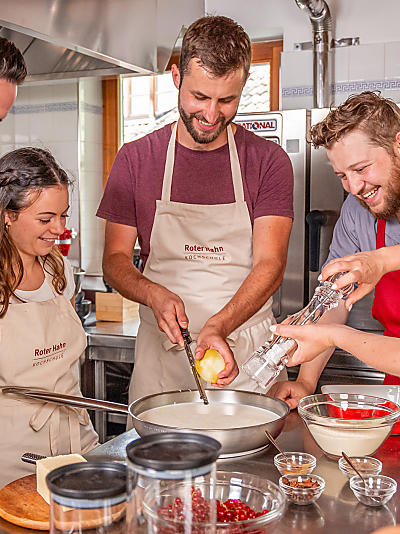SUCCESS STORY
Roter Hahn milestones
The Roter Hahn brand was launched in 1998. However, the history of farm holidays in South Tyrol began much earlier.
1850
Farm holidays were born in South Tyrol
Farm holidays in South Tyrol have been around since 1850 - extremely early compared to other destinations, where the trend only began after the Second World War. This is because of the climatic conditions: Bolzano is the hottest city in Italy in summer. In order to escape the heat in the valley, the well-to-do residents felt that escaping upwards was the obvious choice and they fled to the mountain villages in the area for their summer holidays. Between June and September they lived for one to three months on a farm in higher mountainous areas. Travelling to the sea was not possible at the time due to restricted mobility.
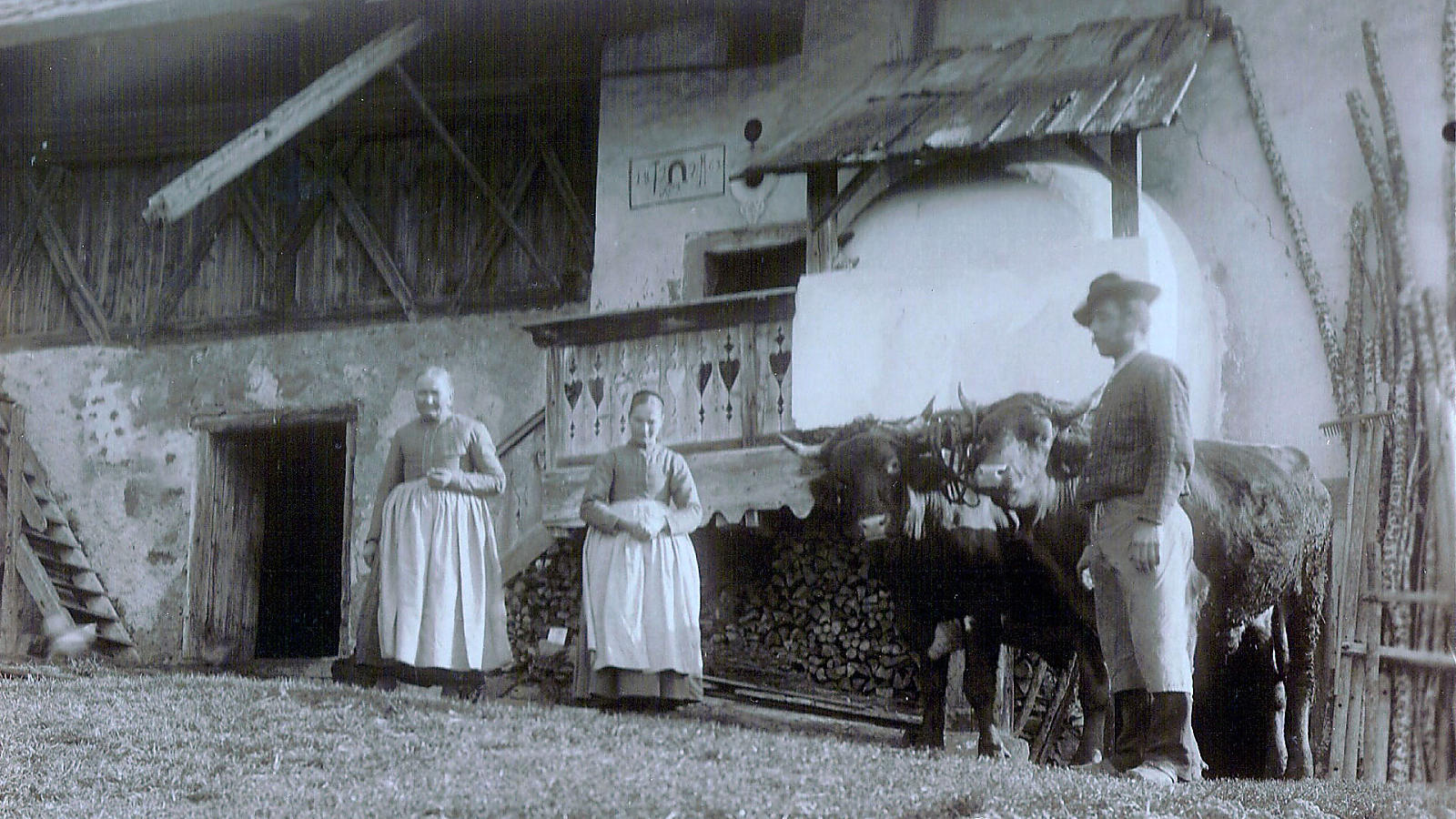
1960s
Holidaymakers from Germany for the first time
Up until the 1960s, that is, for more than 100 years, farm holidays in South Tyrol were a classic holiday option for the locals - especially for the middle class of Meran, Bolzano and Brixen. After 1960, guests came from Munich (Bavaria) for the first time, thanks to the increasing prosperity of the post-war generation and the completion of the Europa Bridge (1963). Among other things, due to political tensions (the 'bombing years') at this time, holidaymakers from the rest of Italy did not play a role. The South Tyroleans, on the other hand, began to discover holidays on the Adriatic.
1971
First holiday catalogue
The first 'Farm Holidays' catalogue was published in 1971, listing 236 farms throughout South Tyrol. Interesting detail: at that time, the information on each farm was mainly focused on how to reach the farm and on access to water on the farm.
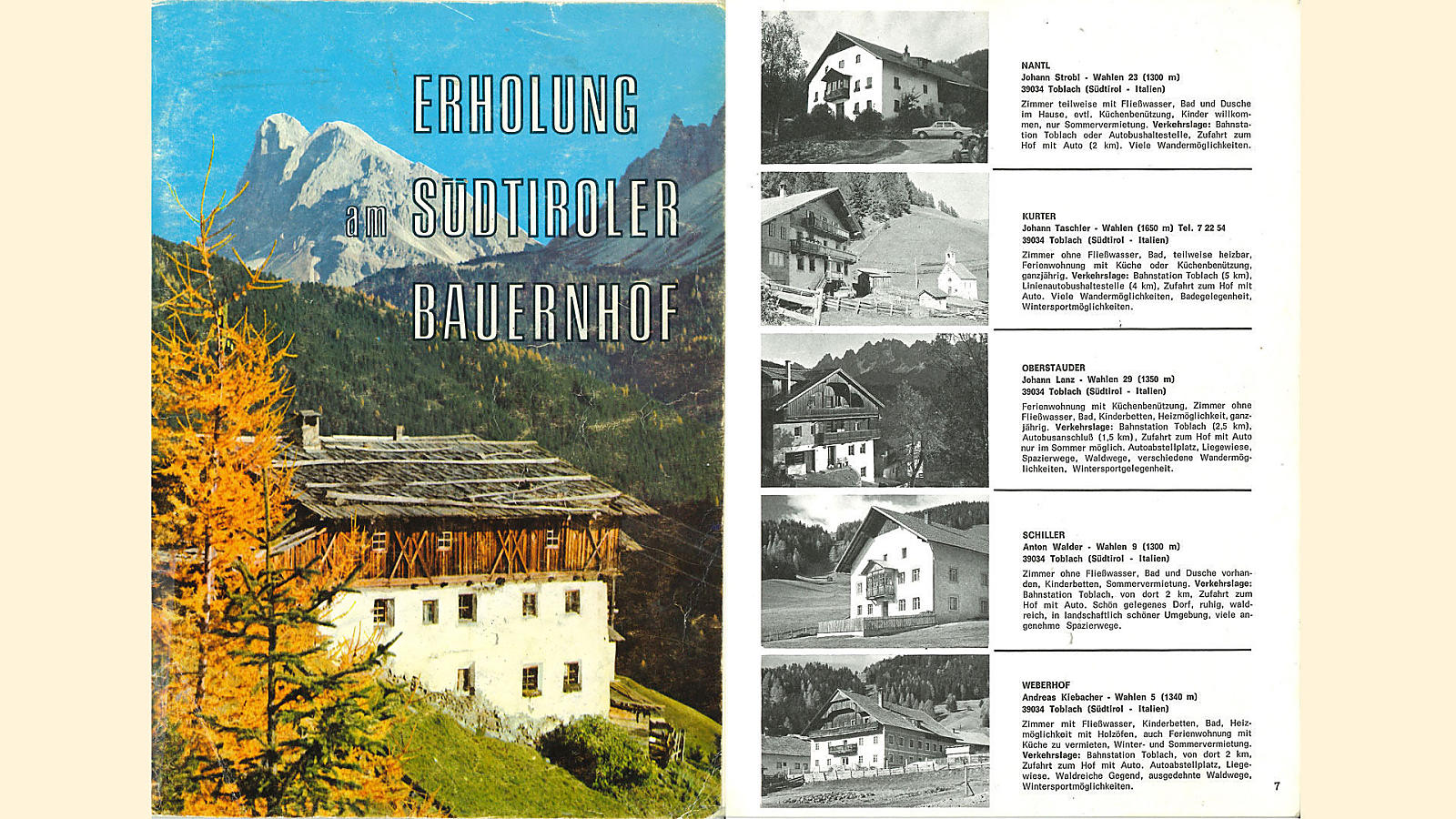
1980s
First holidaymakers from the rest of Italy
Since the beginning of farm holidays, the farming families in South Tyrol have mainly welcomed guests from Southern Germany. Now for the first time holidaymakers are arriving from the rest of Italy.
1990s
Farm holidays in winter
Since the 1990s, the offer of farm holidays was extended to winter for the first time - but only for houses that had a heating system.
1998
The founding of 'Roter Hahn'
In 1998, the 'Roter Hahn' quality seal was created by the Südtiroler Bauernbund.
Reasons:
- Although tourism in South Tyrol was already booming at this time, there was no lobby for farm holidays to represent the interests of farming families. Consequently, guest take up and prices were very low at the time.
- The Südtiroler Bauernbund has recognised that more and more farmers are dependent on an additional income on the farm. Since many farms can no longer make a living from farming alone, 'farm holidays', in many cases, ensure continued farming, including the production of high-quality food and the maintenance of the cultural landscape.
In the first year (1999), farm holidays recorded 15,067 beds, 108,535 arrivals and 797,688 overnight stays.
1998
First Roter Hahn catalogue
In 1998 the first Roter Hahn catalogue was produced, in which almost 740 farms from all over South Tyrol were listed. The catalogue was produced in German and Italian.
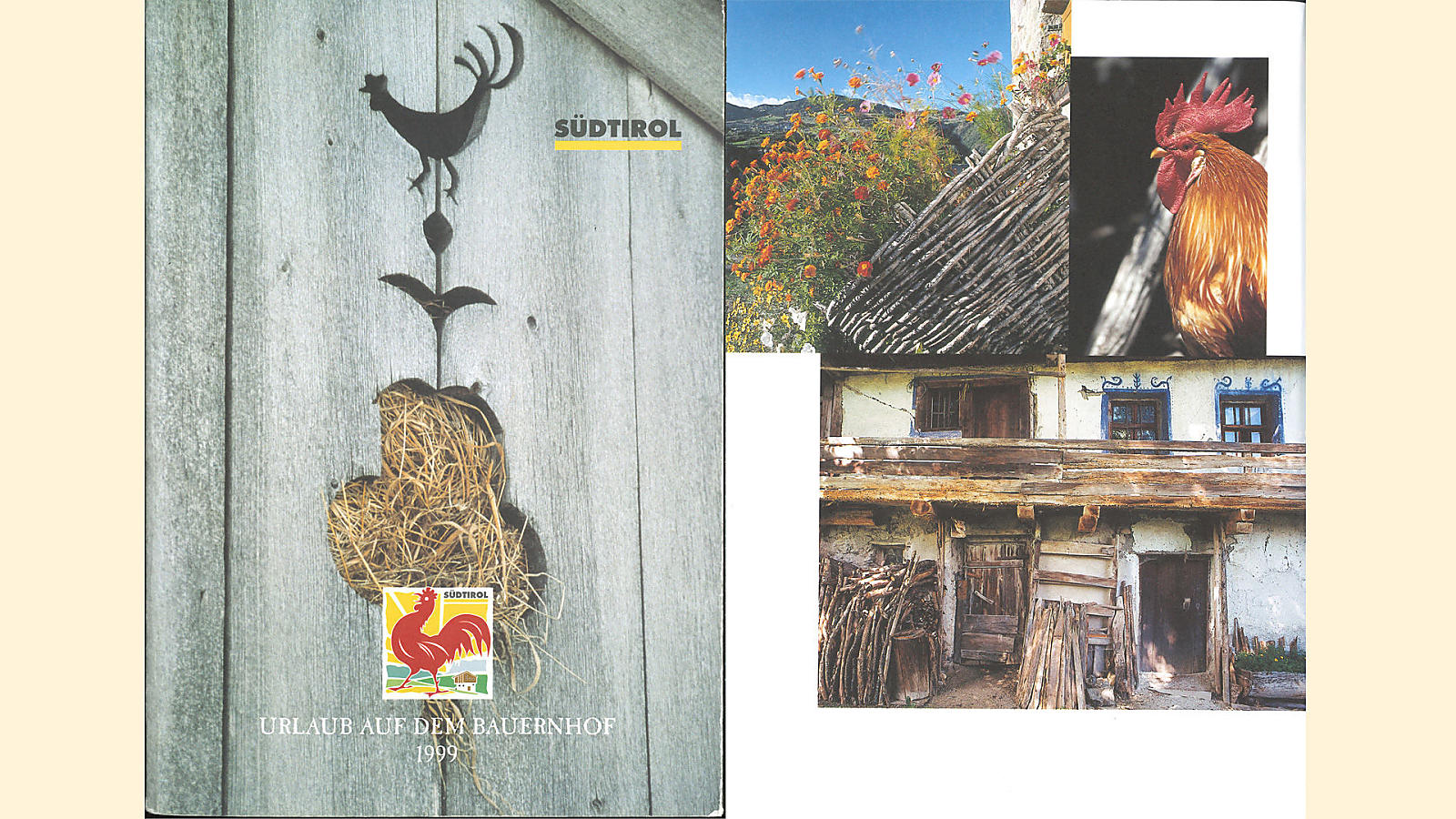
1999
Roter Hahn is crowing on the internet
In 1999 there was the first website and since 2000 www.roterhahn.it has been active.
Today the website is available in six languages.
2002
Introduction of the specializations
2002 marked the start of the specialised farms. The aim is to utilise South Tyrol's special features and to create an experience that is perfectly tailored to the holiday wishes of the guests. Some specializations, such as the high-altitude or historical farm, only exist in South Tyrol. In 2002, 'Roter Hahn' won the first marketing prize of the former Südtirol Marketing Gesellschaft (SMG) for the introduction of the specializations.
2003
Two new product lines
In 2003, 'Roter Hahn' became the umbrella brand for 'farm holidays in South Tyrol' with two additional pillars. Added to this were 'Quality farm products' and 'Farm taverns'. All farms must first undergo an inspection by the Südtiroler Bauernbund and satisfy the high quality standards. During this time, the guiding principle 'We bring people closer to a piece of the rural South Tyrolean way of life' was also created, which still unites all the pillars today. The characteristic features were defined as realness, authenticity, honesty, sustainability and small structures. Up to this point, there were no specified criteria, but they were coming more and more into focus.
2005
Classification of the holiday farms
The classification of the holiday farms was introduced by two independent experts. A separate catalogue of criteria with a total of 96 criteria for evaluating the quality of the farm, facilities and services was drawn up. Based on this catalogue of criteria, the farms are classified with between 1 and 4 flowers. In addition, Roter Hahn introduced the farm folder, in which the farming family introduces themselves and their farm, as well as what's on offer on and around the farm.
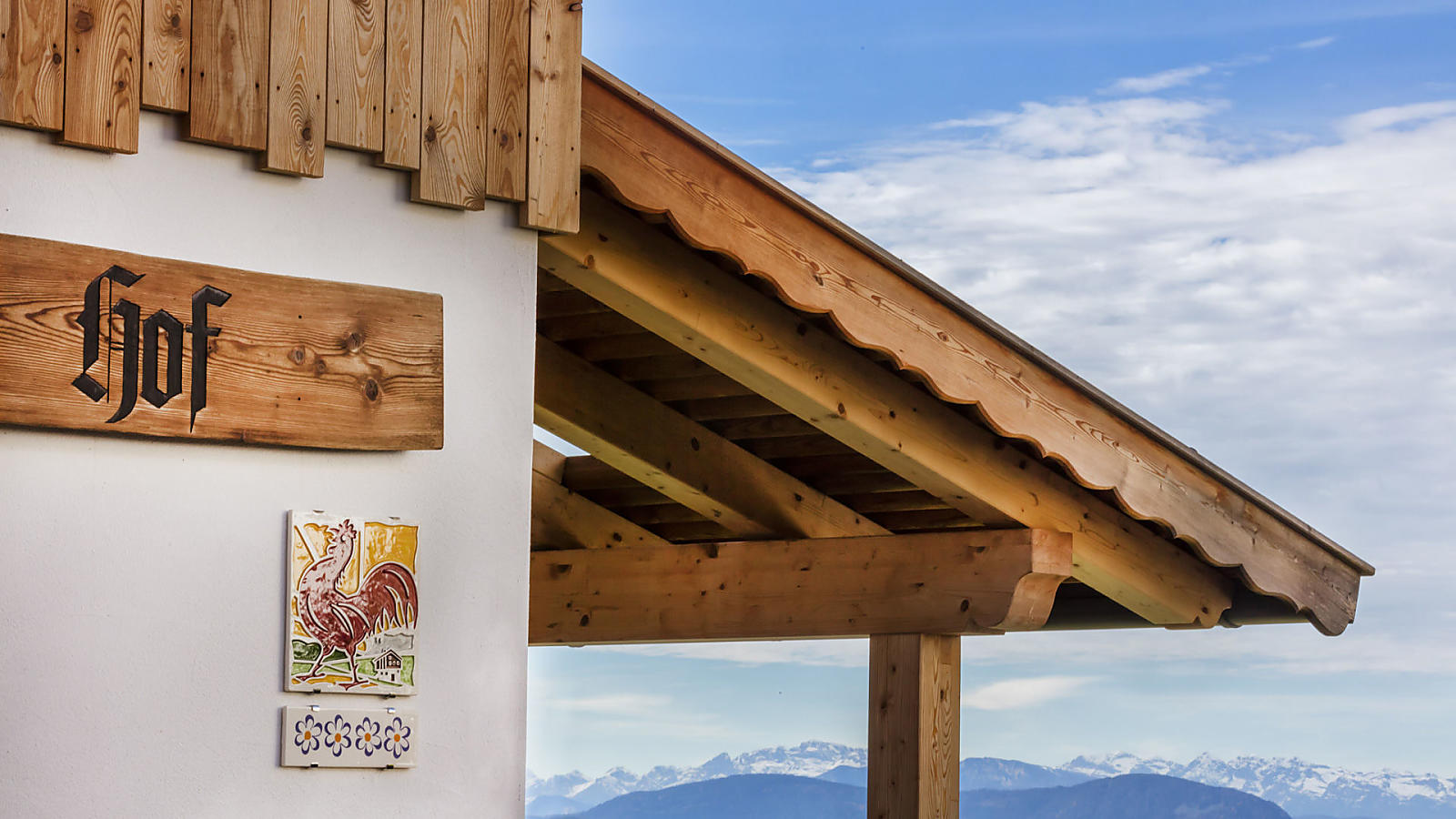
2012
Introduction of farm ratings
Since the introduction of farm ratings, every holiday farm can be rated on www.roterhahn.it.
Therefore the presentation of the farm has three elements:
- How the farmer sees himself (Internet, catalogue, etc.)
- How an independent assessor sees the farm (classification by independent specialists)
- How the guest sees the farm
2013
4th pillar farm handicrafts
In 2013, the 'Roter Hahn' brand integrated the fourth product line, 'farm handicrafts'. In this way, another piece of rural culture is preserved and developed further in the long term.
2015
Revision of the classification and introduction of the 5th flower
With the introduction of the 5th flower, the standard of all holiday farms has been raised significantly. When the classification was revised, specific criteria were defined for the 4 and 5 flower farms.
Criteria 4 flowers:
- A sales corner or a farm shop with at least three farm products or a year-round breakfast with at least 4 farm products.
- One family member must be on the farm all day.
Criteria 5 flowers:
- Sales corner or farm shop with at least four farm-made products
AND year-round breakfast with at least six farm-made products. - Bedrooms must have wooden floors.
- Weekly possibility to experience the life and work of the farmer.
- One family member must be on the farm all day.

